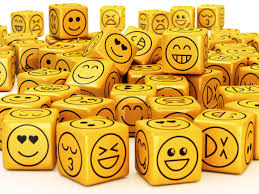
How do you feel?
By Steve Beckow, October 28, 2021
(Golden Age of Gaia)
From a life of observation, as you know, I’ve reached the conclusion that how we feel is what’s most important to human beings. Everything seems to get channeled through the filter of “how do we feel about it?”
We go to Hawaii and rent a room over Waikiki for that magic moment. What does that magic moment boil down to? How we feel.
Although we may not acknowledge it, everything about relationship seems to revolve around how we feel. Any decision from buying a car to conceiving a child is filtered through it.
I could argue that we’re captive to our feelings. Although we’re largely unconscious of it, they show up as who’s steering the boat, who’s deciding our choices, who are our friends and who our enemies, etc.
The ironic thing is that, though our feelings may rule us, we either don’t have a language to discuss them with or else for one reason or another don’t use the one we have.
Our emotional IQ, to borrow a phrase, doesn’t seem to be very high these days. It was in the growth movement of the 1970s.
In part that devolution of consciousness was planned. Team Dark has in every way tried to dumb us down – chemtrails, vaccines, media programming, advertising, sports, glamor, automation, recessions, overseas outsourcing, jobless recoveries, unemployment, MacJobs, etc.
As we now begin to awaken to the deadliness of the vaccine and the plight we’re in, having been raised on deadening fare so far, we may be ill equipped to handle the emotional upset we’re about to experience.
In particular, we haven’t been educated on how to handle our low spots. If we feel low, we tend to feel low about feeling low.
We don’t let it be and just observe it, remaining aware and watching it pass like a cloud overhead. Instead, we get inside the feeling, get behind the steering wheel, and drive it around. We project our anger and upset onto others, when it’s just us that’s been triggered, usually by something in our past.
***
I said earlier that we either don’t have a language to discuss our feelings with or else for one reason or another we don’t use the one we have.
As a result, I could arguably say that we talk little about the most important thing in our lives.
Ask a person how they feel and they likely will say “good” or “tired.” And that’s about as far as the discussion goes.
If a person is low, we listen for a short while and then say something which usually boils down to “you shouldn’t feel that way. Cheer up.”
As Gabor Mate’s work is showing, we never learned how to be with an upset person or to handle our own upsets.
The wounds we received in early life – our early childhood trauma, to use Gabor’s term – fashion our responses rather than our responses being spontaneous (if any of our responses ever truly are).
***
I fervently hope that all this changes in the future. I’m working to see that we relearn an emotional vocabulary and accord our feelings their rightful place among the determinants of our behavior.
And that we learn how to handle the down times.
But most of all that we take responsibility for the way we feel and then begin to do what has us feel at our best.
What has us feel at our best is a synonym, a code word for the divine qualities or divine states. Love, peace, bliss, happiness, joy, abundance, mastery, etc. – these are higher-dimensional states of consciousness, rather than feelings.
They transform the way we feel if they’re the genuine article.
I hope that we begin to explore what has us feel best, share about it, and develop a culture after the deep state is gone that opts for emotional transparency and enjoyment of the divine states.
The divine states, I assert, represent the spectrum of states of consciousness in which we feel best.
We Talk Little about What’s Most Important to us: How we Feel | Steve Beckow
![We Talk Little about What’s Most Important to us: How we Feel | Steve Beckow]() Reviewed by TerraZetzz
on
10/28/2021 10:59:00 PM
Rating:
Reviewed by TerraZetzz
on
10/28/2021 10:59:00 PM
Rating:



